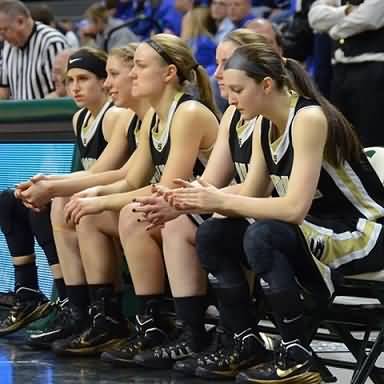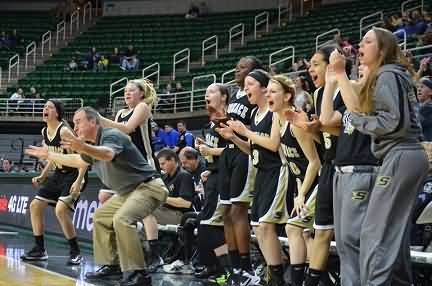Basketball Mental Aspects - From Spectator To Player
by Anthony B. Lanzillo
From the Coach’s Clipboard Basketball Playbook"Helping coaches coach better..."
Tone Lanzillo is a mental prep coach to athletes who want to be mentally prepared to play their best game. He has worked with student-athletes, from middle school through high school and into college, in such sports as basketball, football, soccer and lacrosse. Over the past several years, he has written for a number of sports blogs and websites, including FirstDown Playbook, Coaches Training Room, Ultimate Hockey Source, and Lax Playbook.
Contact: Anthony B. Lanzillo
As a basketball coach, you may find yourself with players on your team who seem to be stepping back and watching the game as it takes place right in front of them on the court. These players appear to be holding back or pulling themselves back from actively participating in a game; especially during challenging or pressure filled game-time situations. Coaches and fellow teammates may be reminding them of their roles or responsibilities in the game but they continue to refrain from stepping up and becoming proactive. These players may need help in understanding that their actions on the court could be a reflection of what they are thinking or telling themselves.

One approach is to ask the players what they are thinking about when the coaches are talking to them. So, when you are talking to a particular player, what are the player's thoughts about himself, the interaction between him and the coach, and the coach? For example, when you are instructing the player, does the player think "the coach is talking to me because I am not a good player" or "the coach is talking to me because he believes in me and wants me to be a better player"? When your player is in the game, and you yell out to this player with specific instructions, is the player thinking "the coach is calling me out, embarrassing me and getting everyone to see my mistakes" or "the coach cares about me, thinks I am a good player and knows that I can do it"?
These players may not be responding to your advice or instructions if they have a negative attitude or belief about themselves, the coaches and/or in the relationship between you and the players. Because of this negative response, they are simply blocking out what you are trying to tell them and not following through. They could be blocking it out because they have told themselves that they can't do it, are convinced that you are focused on them because they are not good players, or that you are just mad and upset with them.
The spectator is an athlete who probably has low self-esteem and has low expectations about himself as a basketball player on the court. He could be putting another player on a pedestal and assuming that he will be outplayed during the game. Given the low self-esteem, minimal expectations about his performance, and an assumption that he will be outplayed, it becomes apparent why one of your athletes is pulling back and becoming more reserved. This athlete is internally focused on negative mental messages, and externally focused on not wanting to make any mistakes and looking bad to others. All these different factors will keep the spectator from becoming an actual player.
Here are several different things that you can do to help any of your athletes transform themselves from spectators into players:
- Help your player identify his personal and athletic strengths, and how he can use those strengths to support his team
- Encourage the player to focus on what he wants to achieve or accomplish, and not focus on what he doesn't want or is afraid of happening
- Remind this player that mistakes will happen and these mistakes are part of the learning process to become a better basketball player
- Talk to the player about why he wants to play the game and what he loves about being a basketball player
- Help your player understand the importance of focusing on what he controls in a game
- Encourage the player to think about what he enjoys and is grateful for by being part of the team

Related page: Basketball Mental Prep Playbook